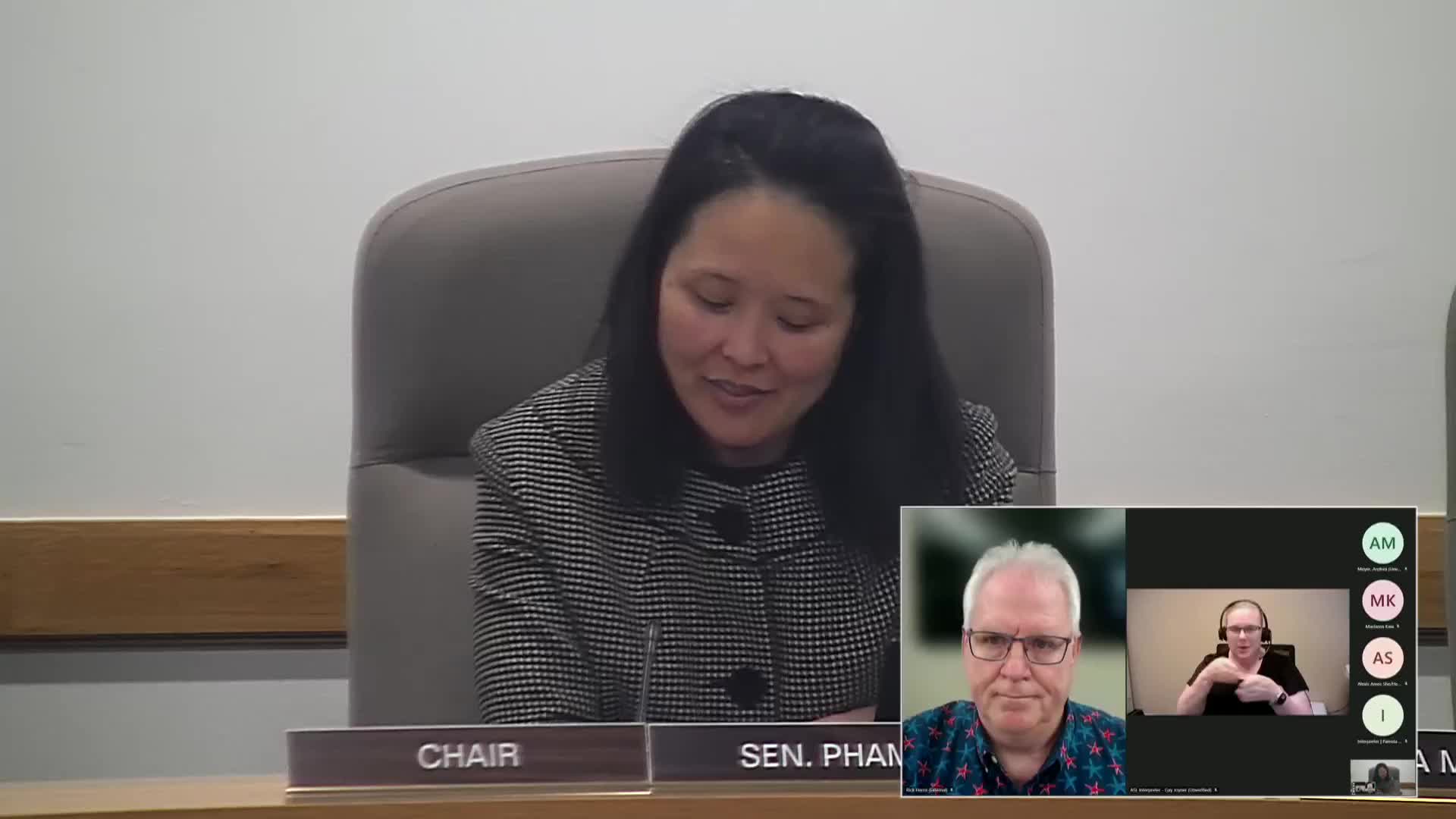Committee hears bill allowing tenants to end fixed‑term leases early after 90‑day nonrenewal notice
Get AI-powered insights, summaries, and transcripts
Subscribe
Summary
House Bill 2134 A would let tenants in fixed‑term tenancies terminate early when landlords have given a required 90‑day notice of noncontinuation; tenants must give 30 days written notice and landlords may not collect rent or fees that would accrue after the tenant returns possession.
House Bill 2134 A would allow a tenant in a fixed‑term tenancy to terminate the rental agreement early if the landlord has already given the required 90‑day notice that the tenancy will not continue past the fixed term, sponsors said at a Senate Committee on Housing and Development public hearing April 21.
Proponents told the committee the change is limited to situations where a landlord has chosen to take possession or sell or alter the property and has already served a 90‑day nonrenewal notice; the bill would let tenants move sooner if they find housing and avoid paying rent for a period they will not occupy.
Representative Tana Sanchez, sponsor, told the committee the bill "allows tenants to have a little bit more agency when it comes to the rental agreement if they've already been asked to move." Sanchez said the bill applies when a landlord has given the required notice that the tenancy will end and the tenant can provide at least 30 days written notice to end the tenancy earlier.
Representative Tom Anderson, a co‑sponsor, said the measure promotes tenant stability and prevents financial hardship when a landlord elects to take back or sell a property. Anderson summarized the situations in which a landlord may give a 90‑day notice: the owner wants to move into the property, sell the property, make major repairs that render the unit uninhabitable, or demolish or convert it to nonresidential use.
Alexis Ames of the Community Alliance of Tenants testified in support, saying the change "is a really small change, but for many renters, it means everything." Ames explained that tenants facing rising rents, unsafe homes, or other pressures should be able to leave without penalty when they have already been told they must move.
Committee members asked several clarifying questions. Sponsors said the bill applies only where the landlord initiates nonrenewal and does not create a general early‑termination right for tenants during an otherwise valid fixed‑term lease. Multifamily Northwest was reported during testimony to have been originally listed as opposed but later characterized as neutral after reviewing the bill's scope.
The public hearing on HB 2134 A closed without a committee vote on April 21.
